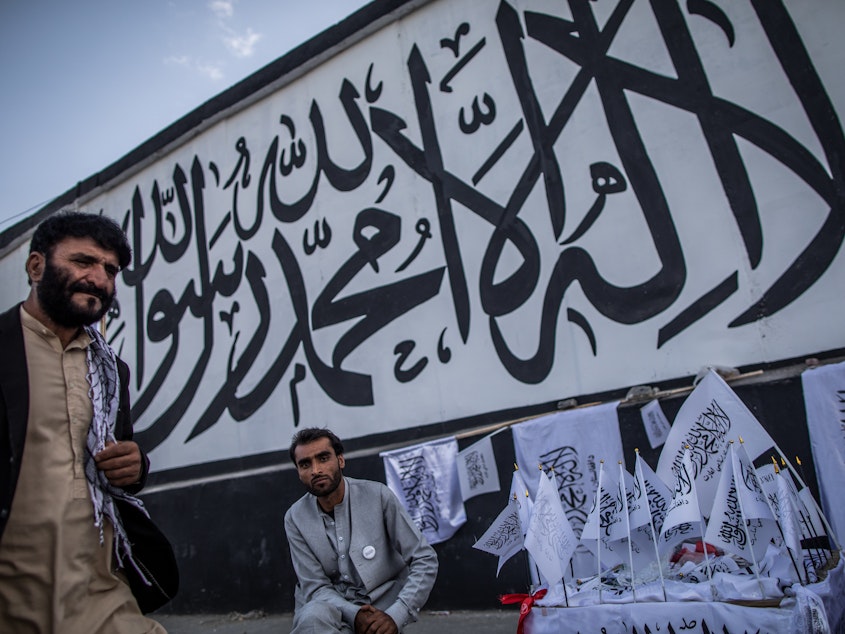Women Are Barred From Attending Kabul University For Now, Says The School Chancellor

The new Taliban-appointed head of Kabul University says women won't be allowed to matriculate or work outside the home "as long as [a] real Islamic environment is not provided for all."
Chancellor Mohammad Ashraf Ghairat tweeted that "women will not be allowed to come to universities or work" until the proper conditions are met.
Later, Ghairat sent another tweet seeking to clarify his remarks and saying that he had been misquoted by The New York Times: "I haven't said that we will never allow women to attend universities or go to work, I meant that until we create an Islamic environment, women will have to stay at home."
The chancellor's remarks suggest that the Taliban, who seized power in Kabul in August, have changed little since the hard-line Islamist movement last ruled Afghanistan in the 1990s, when women and girls were barred from attending schools and universities.
However, Ghairat's tweets appear to contradict a statement earlier this month by the newly appointed Higher Education Minister Abdul Baqi Haqqani, who said women would be allowed to study at Afghan universities as long as they are segregated by gender.
The new university chancellor has been active on Twitter since his appointment a few weeks ago, promoting the school's desire to "appoint more pro-Muslim scholars" and fending off harsh criticism over his scant academic qualifications for the post.
He also has publicly disapproved of the way education in Afghanistan was handled previously, tweeting that "Instead of producing scientific and religious knowledge, the centers were turned into centers of prostitution and moral corruption."
The teachers union of Afghanistan last week sent a letter to the government demanding Ghairat's appointment be rescinded, in what The New York Times described as a "symbolic act of resistance." [Copyright 2021 NPR]
